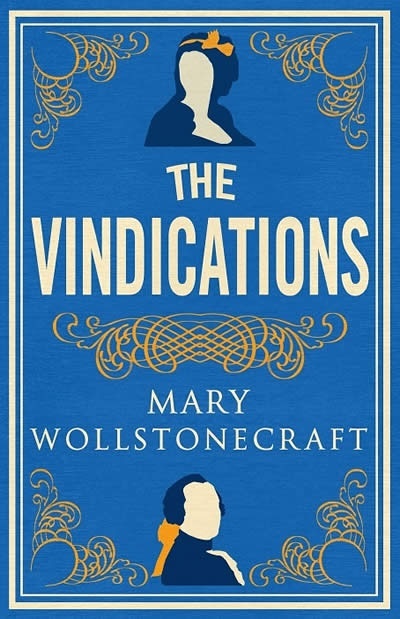The Vindications

Editorial Alma Books Ltd
Fecha de edición marzo 2020 · Edición nº 1
Idioma inglés
EAN 9781847498120
224 páginas
Libro
encuadernado en tapa blanda
Dimensiones 226 mm x 382 mm
Resumen del libro
Written as a passionate riposte to Talleyrand's report to the French National Assembly, in which he declared that women needed only a domestic education, A Vindication of the Rights of Woman attacked the traditional view of decorative femininity and deplored the educational restrictions and the "mistaken notions of female excellence" that degraded women and kept them in a state of "slavish dependence". Indeed, independence, "the grand blessing of life", was at the heart of Wollstonecraft's philosophy, and it is a mark of the profound influence of her words that Virginia Woolf, writing almost a century and a half later, could state that "her originality has become our commonplace". As a companion piece, this volume also includes A Vindication of the Rights of Men - an earlier influential pamphlet advocating republicanism and social equality.
The two Vindications, taken together, showcase Wollstonecraft's rhetorical talents, as well as her brilliance and depth of thought as an anti-establishment polemist and social reformer.
Biografía del autor
MARY WOLLSTONECRAFT (Spitalfields, Londres, 1759 - Somers Town, Londres, 1797). Escritora, filósofa y defensora de los derechos de la mujer, fue uno de los primeros iconos del movimiento feminista. Tras una infancia agitada, abrió una escuela y trabajó como institutriz en Irlanda. Escribió y publicó diversas obras, entre ellas Reflexiones sobre la educación de las hijas (1787) y el famoso tratado Vindicación de los derechos de la mujer (1792). En 1797, se casó con William Godwin, con quien tuvo una hija, la futura Mary Shelley. Wollstonecraft murió de septicemia poco después de dar a luz. María o los errores de la mujer fue publicado póstumamente en 1798.








